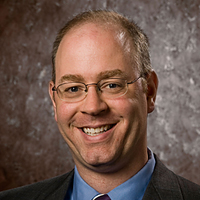Free to Choose What THEY Want
A lot of people talk up school choice. Unfortunately, many only intend to let you choose what they find acceptable. That was a clear theme running through a Fordham Institute event on “controlled choice” last Friday, and is a part of almost any discussion of choice, including a new Politico article on creationism and vouchers.
The highlight of Friday’s gathering was Fordham president Chester Finn attacking the position of the Century Foundation’s Richard Kahlenberg, and controlled-choice architect Michael Alves, that choice should be engineered with socioeconomic diversity as the primary goal. We should “not have an algorithm determining who’s going to which school, or whose choices are going to be constrained by somebody else’s notion of where they should go to school,” said Finn.
Finn’s objection seemed to fully embrace freedom, indicating that no political authority should decide what is the “right” or “wrong” thing to choose. Or maybe not. Soon after saying that one should be free to prioritize school quality over diversity, Finn suggested government should regulate the former. “Every school should be worth going to. They should be a quality school that includes a common core curriculum.” This in response to a point by Kahlenberg that “public funds” should not go to a “KKK school Add New, a Taliban school.”
Which brings us to the Politico piece, which almost certainly seeks to condemn voucher programs for enabling people to pay for schools that teach creationism. See just the first paragraph, which employs the loaded term “bankrolling” and appears to mock creationist beliefs:
Taxpayers in 14 states will bankroll nearly $1 billion this year in tuition for private schools, including hundreds of religious schools that teach Earth is less than 10,000 years old, Adam and Eve strolled the garden with dinosaurs, and much of modern biology, geology and cosmology is a web of lies.
The implication is clear: Creationists – despite being taxpayers themselves – should not be able to use taxpayer funds at schools that teach their views, in part because other taxpayers do not support creationist teachings.
Thankfully, states have been able to empower choice another way if they prefer to stay away from vouchers: Tax-credit scholarship programs enable individuals or corporations to receive credits for donating to organizations that furnish scholarships. No one is required to make such donations, and in the best programs they are able to choose among organizations that might focus on the arts, or religion, or science, and so on. (Notably, the Politico article fails to distinguish between voucher and tax-credit scholarship programs.)
That said, maximizing freedom rarely seems to be the ultimate goal of would-be choice controllers, who often argue that their desired ends, such as fostering social cohesion, or excellent science instruction, must trump freedom. The evidence suggests their efforts may well be self-defeating.
Controlled choice, for instance, precipitated headline-grabbing conflict in Wake County, NC – one of Kahlenberg’s exemplar districts – where many residents revolted against their school choices being engineered by algorithm. Similar turmoil has bubbled up in other controlled-choice districts, including Jefferson County, KY, and Wausau, WI. Meanwhile, decades of Gallup polling have shown large majorities of Americans believing in creationism of some kind despite its official banishment from the public schools, which are attended by roughly 90 percent of Americans.
Government cannot make people feel or believe something. It can, though, make them fight over it.
Fighting is pervasive in our public schools, as a Cato map of values-based public schooling battles illustrates. People don’t abandon their religious beliefs, ethnic identities, etc., just to get along. What do they do? As I pointed out to Politico writer Stephanie Simon, important survey research of high school biology teachers illustrates what anecdote and logic long ago suggested: To avoid crippling conflict, teachers avoid controversial content. As a consequence, neither creationists, nor those who want rigorous evolution instruction, often get what they want.
Such conflict avoidance is also an under-discussed component of the white-hot Common Core debate. Some Core opponents charge that the English standards are inadequate, in part because they include essentially no concrete literary content. Why the vacuum? Almost certainly because Core architects, well-aware of the national standards failure of the 1990s, knew that as soon as solid content was prescribed everyone would find something to object to, destroying the effort on the launching pad.
So what’s the ultimate lesson in all this? Everyone should want free choice for all. It is the only way they are likely to get the things that they – but not everyone else – think are crucial.




